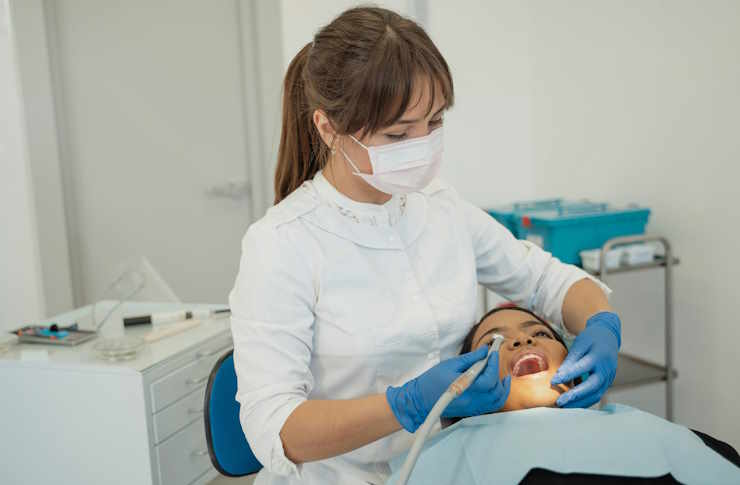The future of dental care: local Turkish clinics
Les implants dentaires représentent aujourd’hui une option fréquemment choisie pour remplacer une ou plusieurs dents absentes. Toutefois, leur prix peut constituer un véritable obstacle pour certains patients. C’est pourquoi de nombreuses personnes explorent des solutions plus accessibles, notamment les implants proposés par des cliniques en Turquie. Cette alternative attire l’attention, mais quels sont ses réels avantages et inconvénients ? Analysons les éléments à connaître avant de prendre une décision.

Why are Turkish dental clinics gaining popularity?
Turkish dental clinics have been attracting an increasing number of international patients in recent years. The primary reason for this surge in popularity is the combination of affordable prices and high-quality care. Many Turkish dentists receive their education and training in Europe or the United States, ensuring they are up-to-date with the latest dental techniques and technologies. Additionally, Turkey’s strategic location between Europe and Asia makes it easily accessible for patients from both continents.
What qualifications do Turkish dentists have?
Turkish dentists are required to complete a rigorous five-year dental education program followed by a one-year internship. Many choose to further their education with specializations or advanced degrees from prestigious international institutions. The Turkish Dental Association also mandates continuing education for all practicing dentists, ensuring they stay current with the latest advancements in dental care. When considering a Turkish clinic, patients should look for dentists with internationally recognized qualifications and memberships in professional organizations.
How do Turkish dental clinics ensure quality and safety?
Quality and safety are paramount in Turkish dental clinics catering to international patients. Many of these clinics have invested in state-of-the-art equipment and adhere to strict sterilization protocols. To maintain high standards, reputable clinics often seek accreditation from international organizations such as the Joint Commission International (JCI) or the International Organization for Standardization (ISO). Patients should research clinics thoroughly, looking for those with positive reviews, clear communication practices, and a commitment to patient safety.
What types of dental implants are available in Turkey?
Turkish dental clinics offer a wide range of implant options to suit different patient needs and budgets. The most common types include:
-
Titanium implants: Known for their durability and biocompatibility
-
Zirconia implants: Metal-free options that are ideal for patients with metal allergies
-
All-on-4 implants: A full-arch restoration technique using only four implants
-
Mini implants: Smaller implants suitable for patients with less bone density
Patients should consult with their chosen clinic to determine the best implant type for their specific case.
What unique benefits do Turkish dental clinics offer?
Turkish dental clinics have recognized the needs of international patients and have tailored their services accordingly. Many offer all-inclusive packages that combine dental treatment with accommodation and transportation. This comprehensive approach can significantly reduce the stress associated with planning a medical trip abroad. Additionally, some clinics provide translation services, ensuring clear communication between patients and dental staff. The opportunity to combine dental treatment with a vacation in Turkey’s rich cultural and historical settings is an added bonus for many patients.
How do costs compare between Turkish and other international clinics?
When it comes to dental implants, cost is often a significant factor in a patient’s decision-making process. Turkish dental clinics have gained a reputation for offering high-quality treatments at a fraction of the cost found in many Western countries. Let’s compare the average costs of a single dental implant across different countries:
| Country | Average Cost (Single Implant) | Additional Notes |
|---|---|---|
| Turkey | $650 - $1,200 | Includes implant, abutment, and crown |
| United States | $3,000 - $4,500 | Prices vary widely by region |
| United Kingdom | £2,000 - £2,500 | NHS options limited; mostly private |
| Germany | €2,000 - €3,000 | Some insurance coverage possible |
| France | €1,500 - €2,000 | Partial reimbursement through social security |
Prices, rates, or cost estimates mentioned in this article are based on the latest available information but may change over time. Independent research is advised before making financial decisions.
The significant cost savings in Turkey are clear, often allowing patients to afford multiple implants or more extensive dental work for the price of a single implant in their home country. However, it’s crucial to remember that these prices can vary depending on the specific clinic, the dentist’s experience, and the type of implant used. Patients should always request detailed quotes and treatment plans before committing to any dental procedure abroad.
In conclusion, local Turkish dental clinics are indeed shaping the future of dental care by offering high-quality, affordable implant treatments. With qualified dentists, modern facilities, and comprehensive patient care, they present a compelling option for those seeking dental implants. However, as with any medical decision, thorough research and careful consideration of all factors, including potential risks and follow-up care, are essential before choosing to undergo dental treatment abroad.
This article is for informational purposes only and should not be considered medical advice. Please consult a qualified healthcare professional for personalized guidance and treatment.






